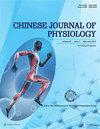The risk stratification of coronary vascular disease as linked to homocysteine, its modulating genes, genetic polymorphisms, conventional predictors, and with antihypertensive medicaments.
IF 1.6
4区 医学
Q4 PHYSIOLOGY
引用次数: 0
Abstract
Cardiovascular disease (CVD) have multifactorial nature, and owing to their disparate etiological roots, it is difficult to ascertain exact determinants of CVD. In the current study, primary objective was to determine association of single nucleotide polymorphisms (SNP) in folate pathway genes, homocysteine, antihypertensive medication, and of known risk factors in relation to CVD outcomes. The participants numbered 477 (controls, n = 201, ischemic heart disease patients, n = 95, and myocardial infarction cases, n = 181, respectively). SNPs that were queried for homocysteine pathway genes included, “methylene tetrahydrofolate reductase (MTHFR)” gene SNPs rs1801133 and rs1801131, “methyltransferase (MTR)” SNP rs1805087, “paraoxonase 1 (PON1)” SNP rs662, and angiotensin-converting enzyme (ACE) gene polymorphisms rs4646994. Medication data were collected through questionnaire, and serum-based parameters were analyzed through commercial kits. The analysis of variance and multiple comparison scrutiny revealed that age, gender, family history, cholesterol, creatinine, triglyceride, high density lipoproteins (HDL), homocysteine, beta-blocker, ACE inhibitors, MTHFR and PON1 SNPs related to coronary artery disease (CAD). On regression, rs662 SNPs and C-reactive protein had nonsignificant odds ratio, whereas age, gender, creatinine, and HDL were nonsignificant. Family history, cholesterol, homocysteine, beta blocker, and ACE inhibitors, homocysteine, rs1801133 and rs1801131 SNP maintained significance/significant odds for CAD. The current study indicates an intricate relationship between genetic variants, traditional factors, and drug usage in etiogenesis of arterial disease. Differences in SNPs, their modulated effects in consensus with medicinal usage may be related to ailment outcomes affecting coronary vasculature.冠状动脉疾病的风险分层与同型半胱氨酸、其调节基因、遗传多态性、常规预测因子和抗高血压药物有关。
心血管疾病(CVD)具有多因素的性质,由于其不同的病因,很难确定CVD的确切决定因素。在目前的研究中,主要目的是确定叶酸通路基因的单核苷酸多态性(SNP)、同型半胱氨酸、抗高血压药物以及与心血管疾病结局相关的已知危险因素之间的关系。参与者共477人(对照组201人,缺血性心脏病患者95人,心肌梗死患者181人)。查询的同型半胱氨酸途径基因snp包括“亚甲基四氢叶酸还原酶(MTHFR)”基因snp rs1801133和rs1801131,“甲基转移酶(MTR)”基因snp。对氧磷酶1 (PON1) SNP rs1805087SNP rs662和血管紧张素转换酶(ACE)基因多态性rs4646994。通过问卷调查收集用药资料,通过市售试剂盒分析血清参数。方差分析和多重比较审查显示,年龄、性别、家族史、胆固醇、肌酐、甘油三酯、高密度脂蛋白(HDL)、同型半胱氨酸、β受体阻滞剂、ACE抑制剂、MTHFR和PON1 snp与冠状动脉疾病(CAD)相关。在回归分析中,rs662 snp和c反应蛋白的比值比不显著,而年龄、性别、肌酐和HDL的比值比不显著。家族史、胆固醇、同型半胱氨酸、受体阻滞剂和ACE抑制剂、同型半胱氨酸、rs1801133和rs1801131 SNP维持CAD的显著/显著风险。目前的研究表明,在动脉疾病的发病中,遗传变异、传统因素和药物使用之间存在复杂的关系。snp的差异及其与药物使用一致的调节作用可能与影响冠状动脉血管的疾病结局有关。
本文章由计算机程序翻译,如有差异,请以英文原文为准。
求助全文
约1分钟内获得全文
求助全文
来源期刊
CiteScore
2.30
自引率
5.60%
发文量
36
审稿时长
6-12 weeks
期刊介绍:
Chinese Journal of Physiology is a multidisciplinary open access journal.
Chinese Journal of Physiology (CJP) publishes high quality original research papers in physiology and pathophysiology by authors all over the world. CJP welcomes submitted research papers in all aspects of physiology science in the molecular, cellular, tissue and systemic levels. Multidisciplinary sciences with a focus to understand the role of physiology in health and disease are also encouraged.
Chinese Journal of Physiology accepts fourfold article types: Original Article, Review Article (Mini-Review included), Short Communication, and Editorial. There is no cost for readers to access the full-text contents of publications.

 求助内容:
求助内容: 应助结果提醒方式:
应助结果提醒方式:


